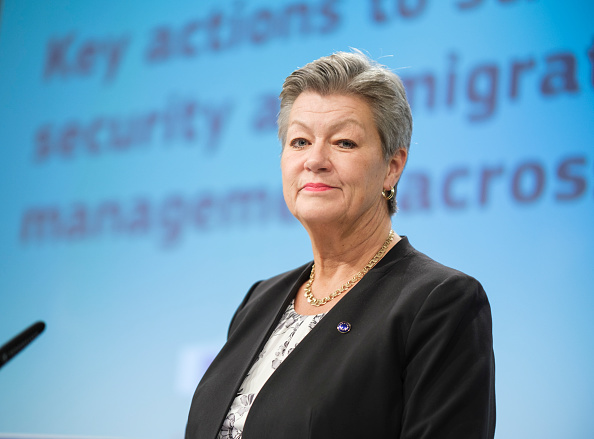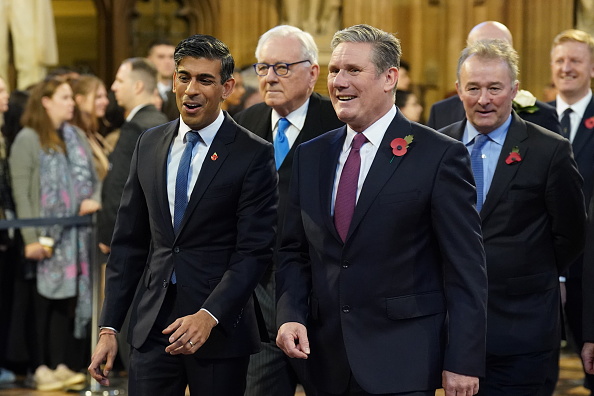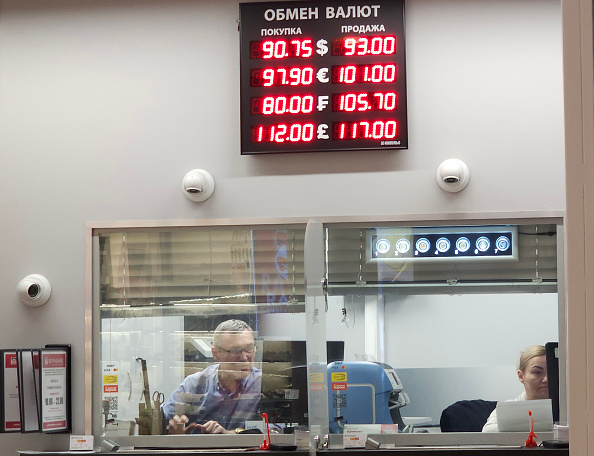With the EU’s migration policy in the spotlight for June’s European Parliament elections, Sweden is where the issue likely hits closest to home.
Since December 2019, the country’s own Ylva Johansson has been in charge of the EU’s Migration and Home Affairs portfolio, with the commissioner having pursued a border policy perceived as too harsh by some and not harsh enough by others.
Such policies have directly impacted voting Swedes, both at home and abroad. Two of the country’s nationals were fatally shot in Brussels on October 17, allegedly by a rejected asylum-seeker.
The prolific attack came following a summer of violence in the city, with much of the violence involving the Foxtrot gang led by the so-called “Kurdish Fox” Rawa Majid.
With Sweden itself also seeing numerous incidents of migrant-related violence, the country has now seen a political backlash against open borders.
Interestingly enough, such pro-border control rhetoric is now coming from the centre-left opposition, with Magdalena Andersson’s Swedish Social Democratic Party lambasting Prime Minister Ulf Kristersson’s centre-right government for its failure to curb migration.
“Free immigration is not left-wing. Those who have pushed the most for free immigration in Sweden are the right-wing, Andersson told Sweden’s Expressen newspaper on December 20.
“Ulf Kristersson and [Justice Minister] Gunnar Strömmer are the ones who have done that.”
Saga Söderström, a Swedish politics postgraduate at the London School of Economics, told Brussels Signal Sweden has moved faster and further than other EU countries to constrict migration — and away from a long-time policy of open borders “coupled with a naïveté regarding the implications of its real challenges”.
Sweden’s Security Service says the country is in a serious security situation, with major threats from hostile foreign actors and violent extremists. https://t.co/yLkuPo85QJ
— Brussels Signal (@brusselssignal) February 21, 2024
Brookings Institution researcher Danielle Lee Tomson noted that Sweden’s welcoming of refugees and asylum seekers was “a point of pride” from the Second World War until the first decade of the current millennium.
Sweden welcomed “Iranians after the Islamic revolution, Chileans fleeing Pinochet, and war refugees from the former Yugoslavia”, the NGO official said, arguing that the country opened up its borders in the 1990s and 2000s even as European neighbours tightened theirs.
In the context of the former Yugoslavia and the Syrian civil war, open borders were “pushed for and passed by [Kristersson’s] Moderates under their mandate between 2006-2014,” added Söderström.
That, she said, was “interesting considering the massive shift they have made in relation to this policy since then and, I would say, have since 2014 been deflecting blame towards the Left bloc”.
The new Tidö confidence-and-supply deal between the three parties making up Kristersson’s cabinet and the populist the populist Sweden Democrats has since seen a sharp reduction in refugees coming into the country — from 5,000 per year to just 900.
The government has also promised to consider ending permanent-residence permits and returning people who have “not integrated”.
Sweden will look to June 2024’s European Parliament elections as a dress rehearsal for its next national vote in September 2026.
In both, little may distinguish the government and its centre-left opposition on migration – but each will seek to convince voters that migration problems are the other side’s fault.
The Sweden Democrats will support Sweden leaving the European Union if Brussels continues to take more powers for itself, the party's leading MEP Charlie @Weimers has warned. https://t.co/or4u9sf8dF
— Brussels Signal (@brusselssignal) November 24, 2023





